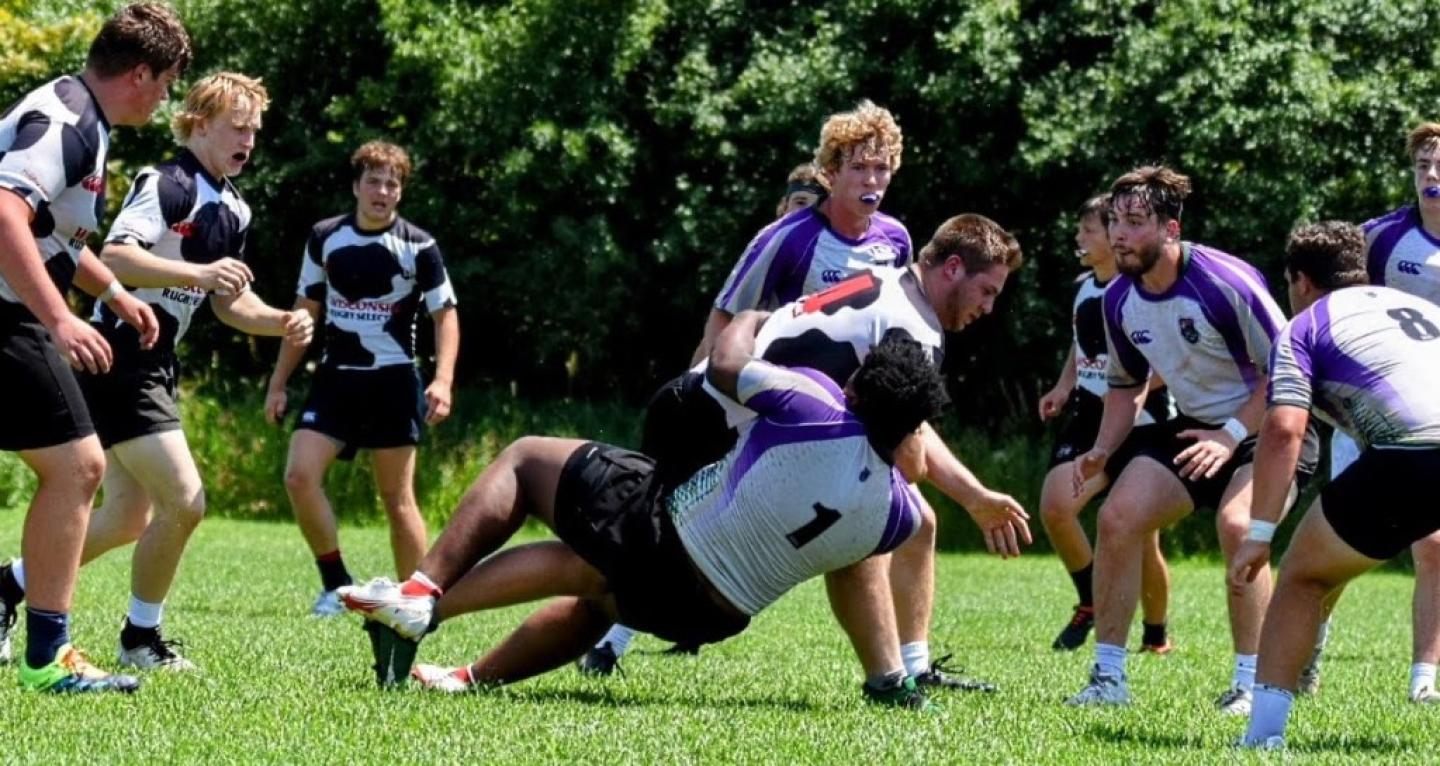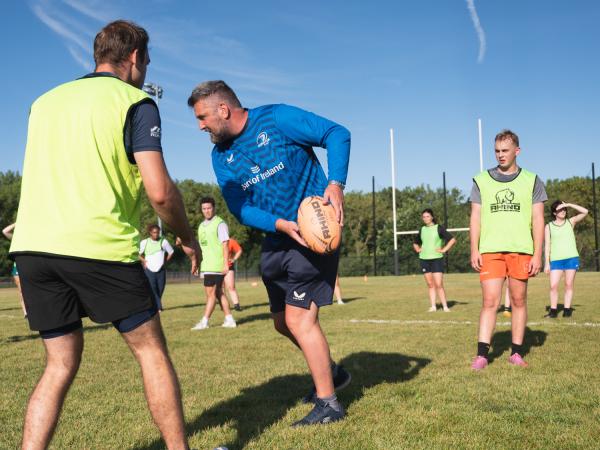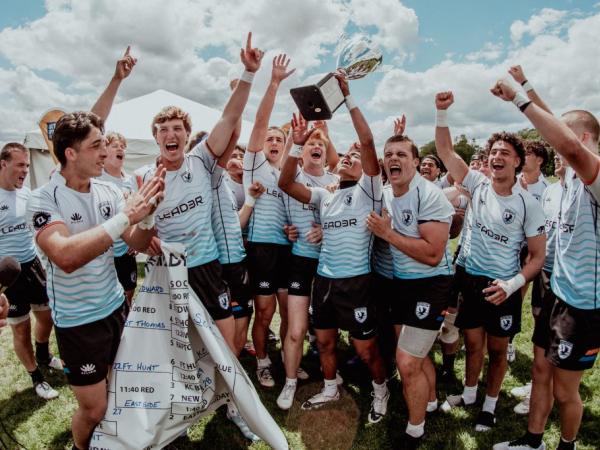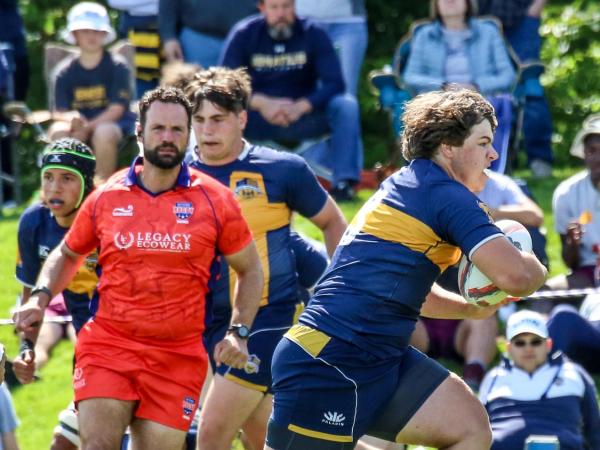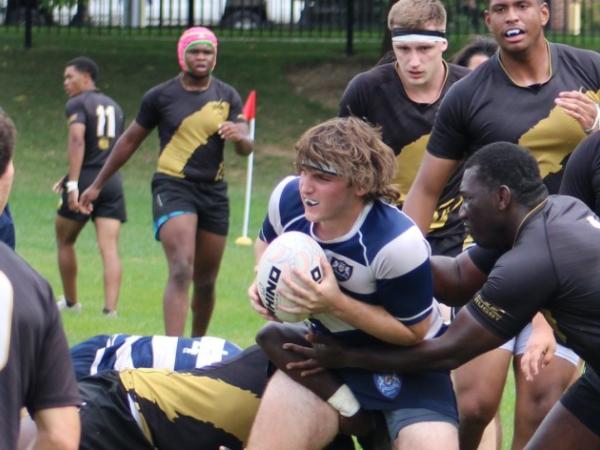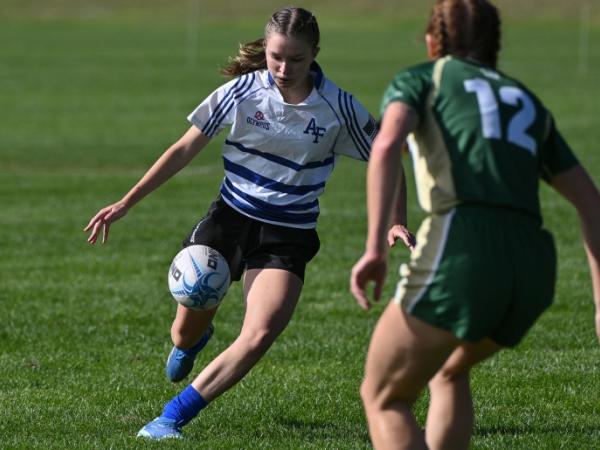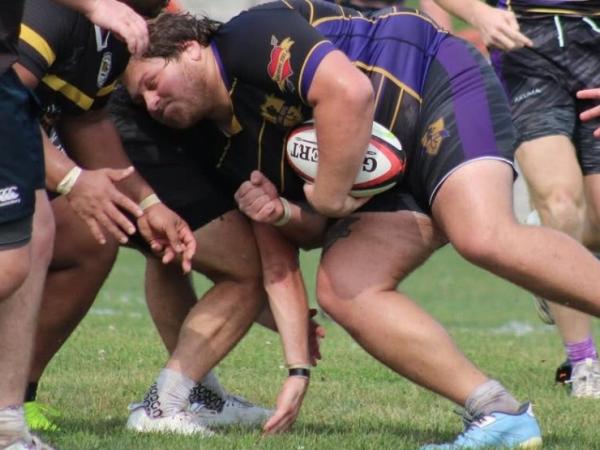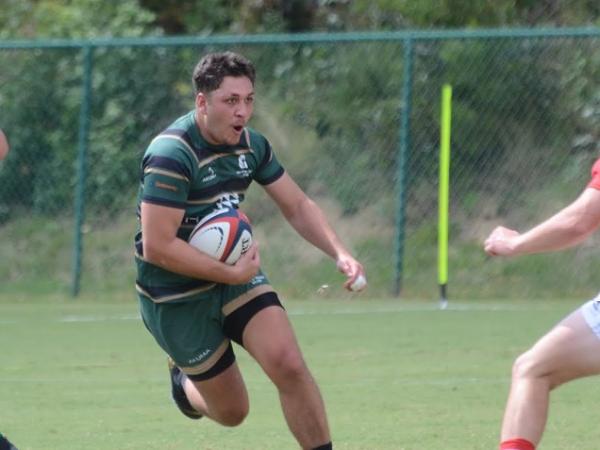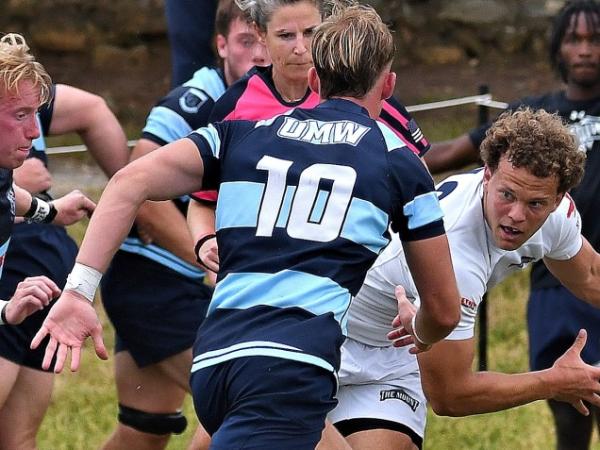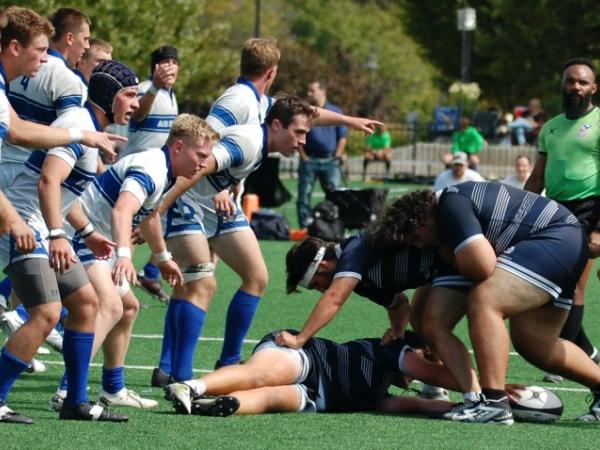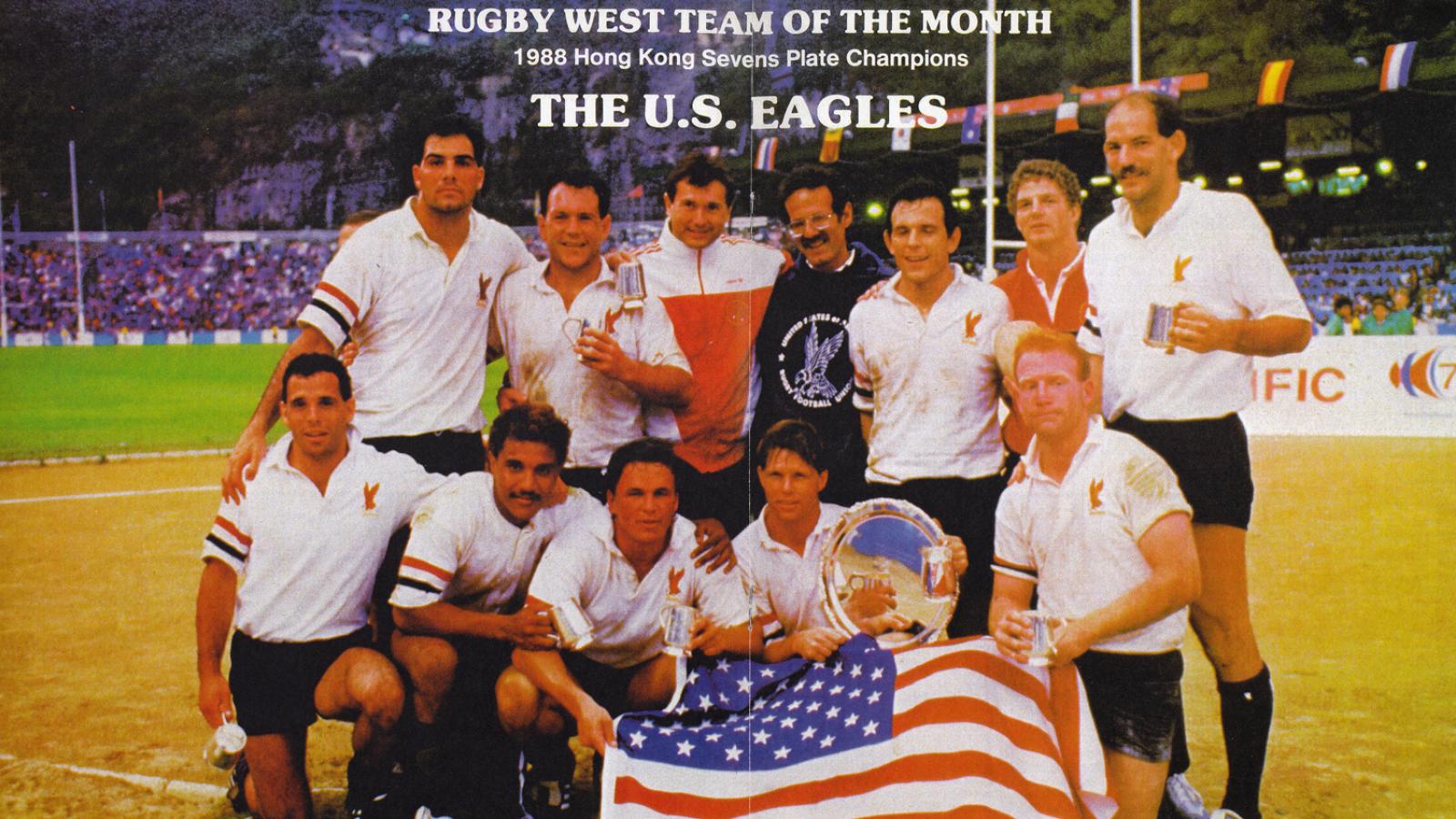Boys select teams from Wisconsin, Minnesota, and Iowa assembled in De Pere, WI this past weekend.
The games are reported in more detail here>> but there's more to the story than that.
1. Iowa HS rugby is 7-a-side rugby. There is a group of coaches who, while acknowledging that the Iowa approach has allowed 18 boys school teams and nine girls school teams to get on the field, representing hundreds of young players, recognize that as those players go on to college and club rugby, they need to know how to play 15s. And 15s is very different from 7s in many respects.
The select side effort, which included a warmup game with Minnesota the week before and then a game against Wisconsin's Badger Selects this past Saturday, didn't produce wins, but that wasn't the point. These players need to see what 15s rugby—high-level 15s rugby—is all about. (It's no surprise that Iowa Central CC Head Coach Brent Nelson jumped in to help the Iowa team, even donating his Iowa CCC jumpers for the players to wear; he wants in-state rugby players who understand 15s before they show up at Fort Dodge.)
"It's more fun for me than 7s, a lot more ball-carrying, a lot more hits," said Jack Kenworthy after the game.
This kind of effort is hugely important. The idea that 7s is an easily-opened door to rugby is valid, but it's not the end-game. The end-game is to have players play rugby for as long as they want to in the venues available to them—they can't be limited to 7s.
2. The U17s got in on the action. To be completely fair, the U17 game struggled to come together at times. This was, in part, because many of the players were quite young and sometimes when there's an age disparity, the younger players, talented as they are, defer to the older players. But the game also didn't fully come together because it was a high-level game. Players who are used to having two or three seconds to make a decision in open field play now had less than one. Players learned that they had to execute skils, skills they are perfectly capable of showcasing, but execute them very quickly. That's difficult.





